
For Sarah, with all my love.
This book has its origins in my growing up in the seventies and reading all the bestsellers about wartime intelligence (and also, as was mandatory at the time, the James Bond novels). Some sort of spark was clearly ignited. Most though not all of those factual books can now be dismissed as fantasy. To be fair, many stories which have taken hold from that time came from people who were trying to remember events that had taken place decades beforehand, invariably without official records or contemporary notes to hand. There were others who were, alas, deliberately telling ridiculous lies or exaggerating the importance of their work. Yet deception, myth and all sorts of rumours were almost inevitable thanks to another peculiarly British obsession that of secrecy for its own sake.
As a result, much of the historical record has been distorted. Only now, at the start of another century with the unprecedented release of many hitherto secret files, can the story of some of the stranger operations be told. Many files remain classified even today, so parts of it remain incomplete. That said, many official records, though, are often as riveting as watching paint dry. When the first volumes of official histories of British Intelligence came out in the late seventies without names of relevant participants they were famously described as written by a committee about a committee to be read by a committee.
Thankfully, the many thousands of pages which have been released by the British government of virtually all the secret agencies wartime records contain much more interesting material. The phrase British Intelligence is one of almost infinite elasticity, but here, specifically, refers to MI5, PWE, SOE, MI (R), Electra House, Section D and MI14. The notable exception are the records of the Secret Intelligence Service, MI6, which the government for entirely understandable reasons has not released. What is interesting is that much MI6 CX material may be found in many other files if you look closely enough. Names have been redacted; sometimes there are tantalising references to further information. Handwritten notes to and from its wartime chief, Sir Stewart Menzies, may also be found which seem to have not been weeded.
Writing this book, then, has been akin to assembling a jigsaw with pieces that remain hidden. So far as possible, I have tried to back up any assertions with reference to official or at least contemporaneous files. Often this has not been possible. Academic papers are useful in providing both context and as an antidote to the more exaggerated reminiscences of participants. The truth, I suspect, lies somewhere in between.
As is probably apparent from the text, I am not a believer in the occult and so have not as many have done told aspects of this story through the prism of those beliefs. As such, I have not made use of the more partisan accounts which, as the text makes clear, often peddle unsubstantiated stories and versions of stories. In some cases particularly concerning Aleister Crowley that simply isnt possible. The same goes for much of the material on the occult itself.
The point here to paraphrase Admiral Godfrey is that it doesnt matter what I think, or what an academic researcher thinks or a reviewer might think or indeed a believer steeped in the arcane practices of the occult thinks. What matters is what the participants believed at the time. On one point I should be clear: many who did believe in the occult did so for entirely laudable reasons. Not everyone who reads (or casts) a horoscope is a gullible fool. Those who believe in other such superstitions do not walk around the house wearing tinfoil on their head. Many are genuine in their beliefs and cannot be dismissed out of hand.
It is a simply a matter of record that in the summer of 1940, the occult provided a useful tool and, in an odd way, worked. That is, fairly quickly, it showed its limitations almost straightaway. Ultimately, trying to discern the advice being given to Adolf Hitler was self-defeating. But in that strange dawn of interest in the subject against the backdrop of the greatest danger the United Kingdom ever faced, emerges a remarkable story to which I hope I have done justice in these pages.
Nicholas Booth
June, 2016
I would like to record my appreciation to many people who have in recent months, and, indeed, over the years provided much needed advice, insights and splendid help on a variety of curious, yet endlessly fascinating, subjects. My own occult education has been aided by conversations with Professor Deborah Harkness, Dr Stephen Clucas and the late Dr Nicholas Goodrick-Clarke, founding director of the Centre for the Study of Esotericism at Exeter University. It is the writers privilege to be able to consult the experts in the field. I am very grateful to Dr Roger Moorhouse for his advice and knowledge about Georg Elser and the incidents surrounding the explosion at the Brgerbrakeller, and Sir Sidney Aster with regard to the Tilea Affair. A number of experts on the intelligence world have freely given of their time and help over the years: David Stafford, Nigel West, Gill Bennett, Eunan OHalpin and Dr Jo Fox. Any errors of interpretation or fact, I should point out, are my own.
Phil Baker, the author of an exemplary biography of Dennis Wheatley, was fantastically helpful, not least in picking up some elementary errors. So, too, was Charles Beck, keeper of the remarkable Wheatley archive and the website denniswheatley.info , who also helped in innumerable ways. A couple of other collectors who wish to remain anonymous also helped provide some illustrations and background information. Dominic Wheatley, grandson of the great writer, was also very helpful and allowed me to quote extensively from much of Denniss later writings.
Paul Busby, biographer of the Second Viscount Tredegar, was incredibly generous with his reading of the manuscript and advice concerning the convoluted life of Evan Morgan: Andrew Macklin, who runs the splendid Agnesbernelle.net site, was very helpful about the remarkable activities of Vicky during the wartime years; at the Romanian Cultural Centre in London, I would also like to thank Carmen Campaneau for her help with regard to V.V. Tilea and the Ratiu family archive; Peter Flemings daughters, Kate and Lucy, were very helpful.
The staff at Manchester University Library and the Manchester Central Library were very helpful in guiding me to find sometimes obscure references. So, too, were Oksana Newman and her cheerful colleagues at Cheshire East Libraries for their help, professionalism and forebearance, I am once again in their debt. At a time when libraries are seriously underfunded and facing extinction, it is a reminder of the great service that they provide.
I would also like to thank librarians and archivists at a number of institutions; Hannah Brown at the Wellcome Trust; Dr Philip Young at the Warburg Institute; Erica New at the National Museum of Royal Navy, Portsmouth; and Li Wei Yang at the Huntington in Pasadena.
I also owe a particular debt of gratitude to Dr Peter Burt, Commodore and Honorary Historian at the Royal Motor Yacht Club in Sandbanks for helping find the portrait of Mansfield Cumming. It was painted in 1918 by H.F. Crowther Smith and believed to have been initialled by C himself; Tim Worner, the current owner, graciously allowed for it to be reproduced on these pages. Gillian Barnes-Riding at the Surrey Heath County Museum, was also very helpful in arranging for me to use the image of Max Knight which formed part of an exhibition on his life and (local) times.
I would like to thank the staff of The National Archive particularly, Howard Davies in his earlier role as well as Jane Rosen, James Taylor and Geoffrey Spender at the Imperial War Museum.
Next page
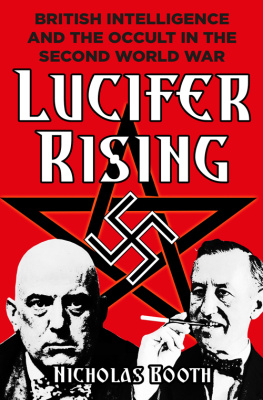
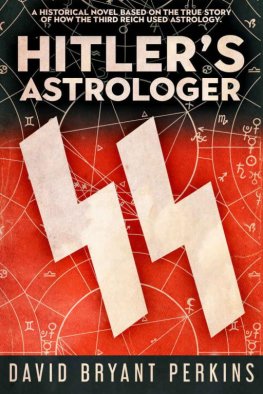
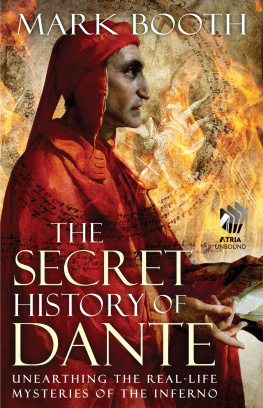

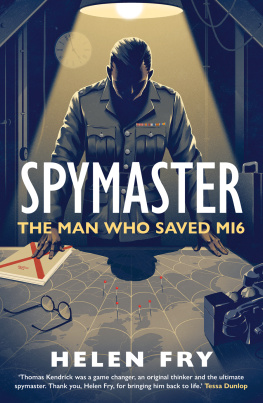

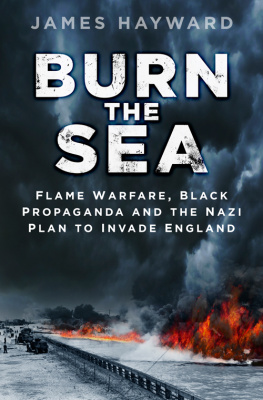
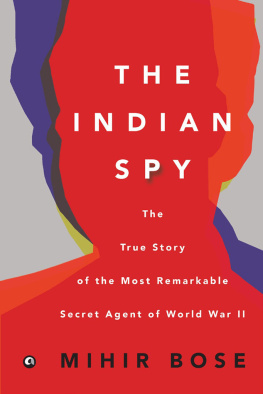
![Nicholas Rankin [Nicholas Rankin] - Churchills Wizards](/uploads/posts/book/56578/thumbs/nicholas-rankin-nicholas-rankin-churchill-s.jpg)
